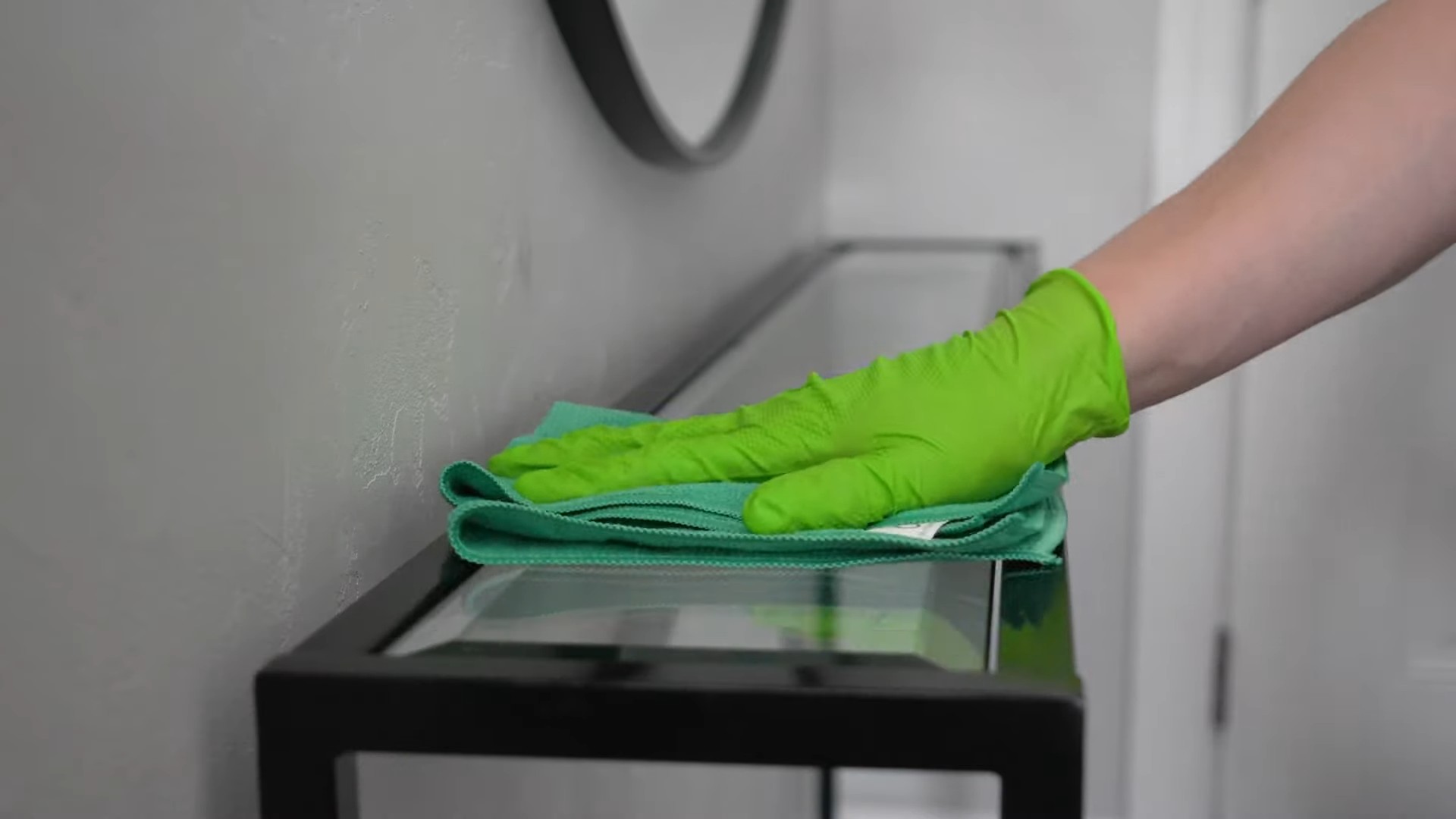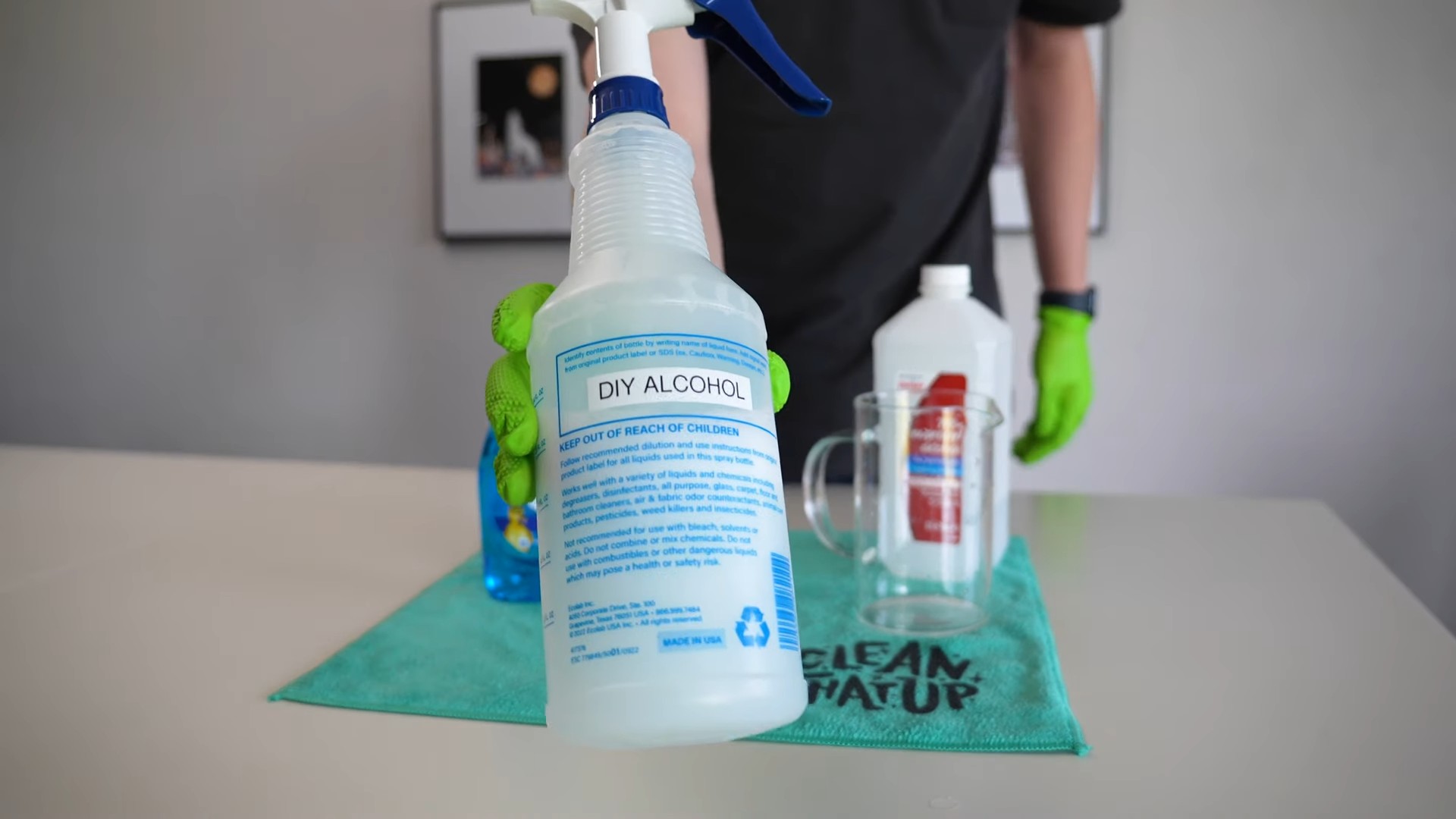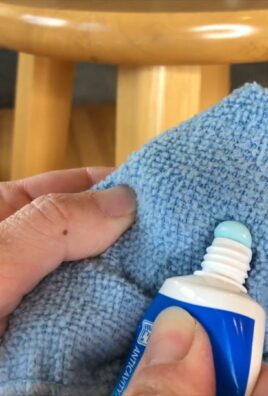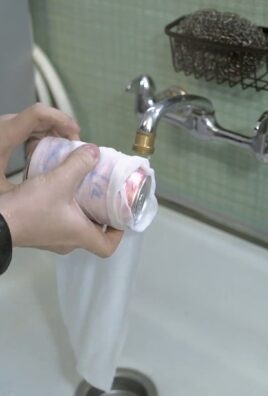DIY Alcohol Based Cleaners: Unlock the secret to a sparkling home with the power of rubbing alcohol! Are you tired of spending a fortune on commercial cleaners filled with harsh chemicals? I know I was! That’s why I dove headfirst into the world of DIY cleaning solutions, and let me tell you, the results have been amazing.
For generations, resourceful homemakers have relied on simple, readily available ingredients to keep their homes clean and fresh. While the exact origins of using alcohol for cleaning are hard to pinpoint, its disinfecting properties have been recognized for centuries. Think about it – even ancient civilizations understood the power of fermentation and its byproducts! Now, we’re harnessing that power in a modern, eco-friendly way.
This article is your ultimate guide to creating effective and affordable DIY alcohol based cleaners. We’ll explore a range of recipes, from all-purpose sprays to specialized solutions for glass, mirrors, and even stubborn stains. Why spend your hard-earned money on expensive, store-bought products when you can create equally effective cleaners with just a few simple ingredients? Not only will you save money, but you’ll also have complete control over what goes into your cleaning products, ensuring a healthier and safer environment for you and your family. So, grab your rubbing alcohol and let’s get started on this journey to a cleaner, greener home!

DIY Alcohol-Based Cleaners: Your Guide to Sparkling Clean Without the Harsh Chemicals
Hey there, fellow DIY enthusiasts! I’m so excited to share my favorite recipes for alcohol-based cleaners. I’ve been making my own cleaning solutions for years now, and I can honestly say it’s been a game-changer. Not only is it more eco-friendly, but it also saves me a ton of money, and I know exactly what’s going into the products I’m using in my home.
Alcohol, specifically isopropyl alcohol (also known as rubbing alcohol) and ethanol (found in high-proof spirits like vodka), is a fantastic disinfectant and solvent. It’s effective against a wide range of germs and can cut through grease and grime like a champ. Plus, it evaporates quickly, leaving surfaces streak-free.
Before we dive in, let’s cover some important safety precautions:
- Always work in a well-ventilated area. Alcohol fumes can be irritating, so open a window or turn on a fan.
- Wear gloves. Prolonged exposure to alcohol can dry out your skin.
- Keep alcohol and cleaning solutions out of reach of children and pets.
- Never mix alcohol with bleach. This can create toxic fumes.
- Test any cleaner on an inconspicuous area first to ensure it doesn’t damage the surface.
Now that we’ve got the safety stuff covered, let’s get cleaning!
All-Purpose Alcohol Cleaner
This is my go-to cleaner for just about everything. It’s great for countertops, sinks, appliances, and even glass.
What you’ll need:
- 1 cup isopropyl alcohol (70% or higher)
- 1 cup water (distilled is best, but tap water works too)
- 10-20 drops of your favorite essential oil (optional, for scent)
- Spray bottle
Step-by-Step Instructions:
1. Combine the ingredients: In your spray bottle, pour in the isopropyl alcohol and water.
2. Add essential oils (optional): If you’re using essential oils, add them now. I personally love lemon, lavender, or tea tree oil for their cleaning and disinfecting properties.
3. Shake well: Secure the spray bottle lid and shake well to combine all the ingredients.
4. Label your bottle: This is super important! Clearly label your bottle as “All-Purpose Alcohol Cleaner” to avoid any confusion.
5. Start cleaning! Spray the cleaner onto the surface you want to clean and wipe it down with a clean cloth or paper towel.
Glass and Mirror Cleaner
Say goodbye to streaks with this simple and effective glass cleaner!
What you’ll need:
- 1/2 cup isopropyl alcohol (70% or higher)
- 1/2 cup water (distilled is best)
- 1 tablespoon white vinegar
- Spray bottle
Step-by-Step Instructions:
1. Combine the ingredients: In your spray bottle, combine the isopropyl alcohol, water, and white vinegar.
2. Shake well: Secure the lid and shake well to mix everything together.
3. Label your bottle: Label it clearly as “Glass Cleaner.”
4. Spray and wipe: Spray the cleaner onto your glass or mirror and wipe it down with a clean microfiber cloth. For best results, use a dry cloth to buff the surface after wiping.
Disinfecting Wipes
These are perfect for quick cleanups and disinfecting surfaces like doorknobs, light switches, and toilet seats.
What you’ll need:
- 1 roll of paper towels (choose a strong, absorbent brand)
- 1 cup isopropyl alcohol (70% or higher)
- 1/4 cup water (distilled is best)
- 1 tablespoon dish soap (optional, for extra cleaning power)
- Airtight container (like an old wipes container or a plastic food container)
Step-by-Step Instructions:
1. Prepare the paper towels: Remove the cardboard core from the paper towel roll.
2. Mix the cleaning solution: In a bowl, combine the isopropyl alcohol, water, and dish soap (if using).
3. Soak the paper towels: Place the paper towel roll in the airtight container. Pour the cleaning solution over the paper towels, making sure they are evenly saturated.
4. Pull from the center: Once the paper towels are thoroughly soaked, pull a sheet from the center of the roll.
5. Seal and label: Seal the container tightly and label it as “Disinfecting Wipes.”
6. Use and dispose: Use the wipes to clean and disinfect surfaces. Dispose of the used wipes in the trash.
Electronics Cleaner
Cleaning electronics requires a gentle touch. This alcohol-based cleaner is safe for screens and keyboards.
What you’ll need:
- Isopropyl alcohol (70% or higher)
- Distilled water
- Two microfiber cloths (one damp, one dry)
- Spray bottle (optional, for larger screens)
Step-by-Step Instructions:
1. Dilute the alcohol (important!): Mix equal parts isopropyl alcohol and distilled water. This dilution is crucial to prevent damage to your electronics.
2. Dampen the cloth: Lightly dampen one of the microfiber cloths with the diluted alcohol solution. Make sure the cloth is not dripping wet!
3. Wipe the surface: Gently wipe the screen or keyboard with the damp cloth. Use short, even strokes.
4. Dry the surface: Immediately wipe the surface with the dry microfiber cloth to remove any remaining moisture.
5. For larger screens: You can lightly spray the diluted alcohol solution onto the microfiber cloth (never directly onto the screen!) and then wipe the screen as described above.
Bathroom Cleaner
This cleaner is great for tackling soap scum, mildew, and other bathroom grime.
What you’ll need:
- 1 cup isopropyl alcohol (70% or higher)
- 1/2 cup water
- 1/4 cup white vinegar
- 10 drops tea tree oil (optional, for its antifungal properties)
- Spray bottle
Step-by-Step Instructions:
1. Combine the ingredients: In your spray bottle, combine the isopropyl alcohol, water, white vinegar, and tea tree oil (if using).
2. Shake well: Secure the lid and shake well to mix everything together.
3. Label your bottle: Label it clearly as “Bathroom Cleaner.”
4. Spray and scrub: Spray the cleaner onto surfaces like shower walls, tiles, and sinks. Let it sit for a few minutes to loosen grime, then scrub with a sponge or brush.
5. Rinse well: Rinse the surfaces thoroughly with water.
Hand Sanitizer
While not a replacement for thorough handwashing, this DIY hand sanitizer is a great option when soap and water aren’t available. Important: Follow CDC guidelines for effective hand sanitization.
What you’ll need:
- 2/3 cup isopropyl alcohol (91% or higher – 70% is acceptable in a pinch, but less effective)
- 1/3 cup aloe vera gel (to help moisturize your hands)
- Few drops of essential oil (optional, for scent – lavender or tea tree are good choices)
- Small bottle with a pump or squeeze top
Step-by-Step Instructions:
1. Combine the ingredients: In a bowl, combine the isopropyl alcohol and aloe vera gel.
2. Add essential oils (optional): If you’re using essential oils, add them now.
3. Mix well: Stir the ingredients together until they are thoroughly combined.
4. Transfer to a bottle: Pour the hand sanitizer into your small bottle.
5. Use as needed: Apply a small amount to your hands and rub them together until dry.
Sticker Residue Remover
Stubborn sticker residue is no match for alcohol!
What you’ll need:
- Isopropyl alcohol (70% or higher)
- Cotton ball or clean cloth
Step-by-Step Instructions:
1. Soak the cotton ball: Soak a cotton ball or clean cloth with isopropyl alcohol.
2. Apply to the residue: Press the soaked cotton ball or cloth onto the sticker residue and let it sit for a few minutes to soften the adhesive.
3. Wipe away: Wipe away the residue with the cotton ball or cloth. You may need

Conclusion
So, there you have it! Crafting your own DIY alcohol based cleaners is not just a cost-effective alternative to store-bought options; it’s a powerful way to take control of the ingredients you’re bringing into your home. You’re reducing your exposure to harsh chemicals, minimizing plastic waste, and creating customized solutions tailored to your specific cleaning needs.
But why is this a must-try? Beyond the savings and eco-friendliness, the effectiveness of alcohol as a disinfectant is well-documented. It’s a potent weapon against germs and bacteria, making it ideal for surfaces you touch frequently. Plus, the versatility of alcohol allows you to create a range of cleaners, from all-purpose sprays to specialized glass cleaners, all with a few simple ingredients.
Consider these variations to further personalize your cleaning experience:
* Essential Oil Infusion: Add a few drops of your favorite essential oils, like lavender for a calming scent, tea tree for its antibacterial properties, or lemon for a fresh, citrusy aroma. Remember to research the safety of essential oils around pets and children before using them.
* Vinegar Boost: For extra cleaning power, especially on stubborn grime, add a splash of white vinegar to your all-purpose cleaner. Be cautious when using vinegar on certain surfaces like marble or granite, as it can etch the stone.
* Herbal Infusion: Steep fresh herbs like rosemary or thyme in the alcohol for a few days before mixing your cleaner. This will impart a subtle, natural fragrance and potentially add extra antimicrobial benefits.
* Citrus Peel Power: Infuse your alcohol with citrus peels (lemon, orange, grapefruit) for a few weeks. This adds a wonderful scent and the citrus oils help to cut through grease.
The possibilities are truly endless! The key is to experiment and find what works best for you and your home.
We strongly encourage you to give these DIY alcohol based cleaners a try. Start with a simple recipe, like the all-purpose spray, and gradually explore the variations. You’ll be amazed at how easy and rewarding it is to create your own effective and eco-friendly cleaning solutions.
Don’t just take our word for it! We’d love to hear about your experiences. Share your favorite recipes, tips, and tricks in the comments below. Let’s build a community of DIY cleaning enthusiasts and empower each other to create healthier, cleaner homes. What scent combinations did you find most effective? Did you discover any unique uses for your homemade cleaners? We’re eager to learn from your successes and troubleshoot any challenges you encounter. Together, we can unlock the full potential of DIY alcohol based cleaners and transform the way we clean our homes.
Frequently Asked Questions (FAQ)
What type of alcohol is best for making DIY cleaners?
Isopropyl alcohol (also known as rubbing alcohol) with a concentration of 70% or higher is generally recommended for disinfecting purposes. Higher concentrations, like 91% or 99%, are even more effective at killing germs but evaporate more quickly. Ethanol (grain alcohol) can also be used, but it’s often more expensive and may have a stronger odor. Avoid using denatured alcohol, as it contains additives that can be harmful. Always check the label to ensure the alcohol is suitable for cleaning and disinfecting.
Is it safe to use alcohol based cleaners around children and pets?
While alcohol is generally safe when used properly, it’s important to take precautions around children and pets. Keep all cleaning solutions out of their reach and store them in clearly labeled containers. Ensure adequate ventilation when using alcohol based cleaners, as the fumes can be irritating. Avoid spraying directly onto surfaces that children or pets may lick or chew. If you’re concerned about potential sensitivities, consider using a lower concentration of alcohol or opting for alternative cleaning methods. Always supervise children when they are helping with cleaning tasks.
Can I use alcohol based cleaners on all surfaces?
No, alcohol based cleaners are not suitable for all surfaces. Avoid using them on delicate materials like painted or varnished wood, as they can damage the finish. They can also be harmful to some plastics and rubber. Always test the cleaner on an inconspicuous area first to ensure it doesn’t cause any discoloration or damage. Alcohol is generally safe for use on glass, stainless steel, tile, and sealed granite or marble. However, it’s best to avoid using it on porous surfaces like unsealed grout, as it can penetrate and potentially cause staining.
How long do DIY alcohol based cleaners last?
DIY alcohol based cleaners typically have a shelf life of several months to a year, depending on the ingredients used. Alcohol itself is a preservative, so it helps to prevent bacterial growth. However, essential oils and other additives may degrade over time, affecting the scent and effectiveness of the cleaner. Store your cleaners in airtight containers in a cool, dark place to prolong their shelf life. If you notice any changes in color, odor, or consistency, it’s best to discard the cleaner and make a fresh batch.
What are the best essential oils to use in DIY alcohol based cleaners?
The best essential oils to use in DIY alcohol based cleaners depend on your personal preferences and desired benefits. Some popular options include:
* Lavender: Known for its calming scent and antibacterial properties.
* Tea Tree: A powerful antiseptic and antifungal agent.
* Lemon: A refreshing scent with degreasing and disinfecting properties.
* Eucalyptus: A strong scent with antiviral and antibacterial benefits.
* Peppermint: A refreshing scent with antimicrobial properties.
When choosing essential oils, be sure to purchase high-quality, pure oils from a reputable source. Always dilute essential oils properly before using them, as they can be irritating to the skin and respiratory system. Research the safety of essential oils before using them around pets and children.
How do I properly dilute alcohol for cleaning purposes?
The ideal dilution ratio for alcohol depends on the intended use. For general disinfecting purposes, a concentration of 70% alcohol is recommended. This can be achieved by mixing 7 parts of 91% isopropyl alcohol with 3 parts of water. For example, if you’re using 1 cup of 91% alcohol, add 1/3 cup of water. If you’re using 70% isopropyl alcohol, you can use it undiluted for disinfecting. Always use distilled or purified water to avoid introducing contaminants into your cleaner.
Can I use DIY alcohol based cleaners to disinfect surfaces during the COVID-19 pandemic?
Yes, alcohol based cleaners with a concentration of at least 70% alcohol can be effective at disinfecting surfaces against the COVID-19 virus. The CDC recommends using alcohol based solutions with a concentration of 70% or higher to disinfect frequently touched surfaces. Ensure that the surface remains wet with the solution for at least 30 seconds to allow for proper disinfection. Always follow the manufacturer’s instructions and take appropriate safety precautions when using alcohol based cleaners.
What are some common mistakes to avoid when making DIY alcohol based cleaners?
Some common mistakes to avoid when making DIY alcohol based cleaners include:
* Using too much essential oil, which can cause irritation.
* Mixing incompatible ingredients, such as bleach and ammonia.
* Using denatured alcohol, which contains harmful additives.
* Not labeling containers clearly, which can lead to accidental misuse.
* Storing cleaners in direct sunlight or heat, which can degrade the ingredients.
* Not testing the cleaner on an inconspicuous area before using it on a large surface.
* Forgetting to wear gloves and eye protection when handling alcohol and other chemicals.
By avoiding these common mistakes, you can ensure that your DIY alcohol based cleaners are safe and effective.



Leave a Comment